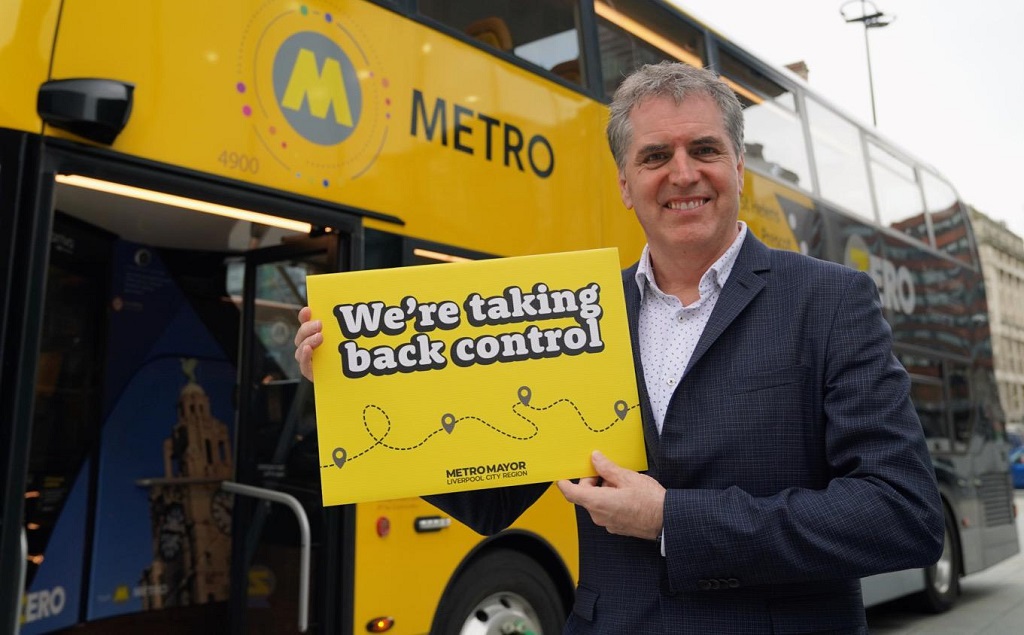Gove outlines 12 key ‘missions’ in Levelling Up White Paper
The white paper is set to be published around lunchtime, but already the government has shared a series of priorities and targets to reach by 2030 to help transform the country.
These include improving local public transport systems outside of London, spreading 5G broadband access across the country and providing every part of England that wants a devolution deal with one.
It does not appear that the report includes any new funding outside of what was shared in the October 2021 spending review.
Levelling up secretary Michael Gove took umbrage to claims the report did not have new money, however, telling Sky News: “I think that’s a bogus argument because the chancellor gave us a huge cheque in the spending review and now we are spending it”.
Several key aspects of the white paper include:
- Scrapping of the 80/20 rule, which pushed 80% of government housing funds towards London and the South East. This will allow the government to divert much of the £1.8bn brownfield funding towards sites in the North and Midlands. Metro Mayors will receive £120m of this funding.
- A plan will be created to ensure all PRS homes meet a minimum standard and section 21 ‘no fault’ evictions will be abolished.
- 68 local authorities will be awarded High Streets Task Force funds
- The creation of a new devolution framework.
- The announcement of three new innovation accelerators, including one in Greater Manchester. These centres will be supported by £100m in government funding.
Prime Minister Boris Johnson described the white paper as “the most comprehensive, ambitious plan of its kind that this country has ever seen”.
Gove warned that the government’s strategy won’t provide quick fixes in its strategy to level up the country.
“This will not be an easy task, and it won’t happen overnight, but our 12 new national levelling up missions will drive real change in towns and cities across the UK, so that where you live will no longer determine how far you can go,” Gove said.
Here are the 12 missions to level up the UK, as shared by a government press release:
- By 2030, pay, employment and productivity will have risen in every area of the UK, with each containing a globally competitive city, with the gap between the top-performing and other areas closing.
- By 2030, domestic public investment in Research & Development outside the Greater South East will increase by at least 40% and at least one third over the Spending Review period, with that additional government funding seeking to leverage at least twice as much private sector investment over the long term to stimulate innovation and productivity growth.
- By 2030, local public transport connectivity across the country will be significantly closer to the standards of London, with improved services, simpler fares and integrated ticketing.
- By 2030, the UK will have nationwide gigabit-capable broadband and 4G coverage, with 5G coverage for the majority of the population.
- By 2030, the number of primary school children achieving the expected standard in reading, writing and maths will have significantly increased. In England, this will mean 90% of children will achieve the expected standard, and the percentage of children meeting the expected standard in the worst-performing areas will have increased by over a third.
- By 2030, the number of people successfully completing high-quality skills training will have significantly increased in every area of the UK. In England, this will lead to 200,000 more people successfully completing high-quality skills training annually, driven by 80,000 more people completing courses in the lowest skilled areas.
- By 2030, the gap in Healthy Life Expectancy (HLE) between local areas where it is highest and lowest will have narrowed, and by 2035 HLE will rise by 5 years.
- By 2030, well-being will have improved in every area of the UK, with the gap between top-performing and other areas closing.
- By 2030, pride in place, such as people’s satisfaction with their town centre and engagement in local culture and community, will have risen in every area of the UK, with the gap between the top-performing and other areas closing.
- By 2030, renters will have a secure path to ownership with the number of first-time buyers increasing in all areas; and the government’s ambition is for the number of non-decent rented homes to have fallen by 50%, with the biggest improvements in the lowest-performing areas.
- By 2030, homicide, serious violence, and neighbourhood crime will have fallen, focused on the worst-affected areas.
- By 2030, every part of England that wants one will have a devolution deal with powers at or approaching the highest level of devolution and a simplified, long-term funding settlement.





What about helping those of us looking down the barrel of £40-60,000 cladding costs.
My building of circa 100 residents has just been told the circa £4.3m worth of works is not eligible for funding! Some apartments are only worth £100,000, they will be pushed into negative equity!
By Anonymous
2030 is a long way away, considering the Tories have been in power for ten years already. We have only started to level up…
By Meeseeks
I think that this…..isn’t a bad start from Gove. I think this brief actually suits him (like Justice….unlike Education)
By Sceptic
Was more than this seriously expected. More devolution is good though. This government just seem to love lots of fairly small funding pots dished out by Whitehall, the bidding for which absorb the precious little time of precious few resources. Not helpful in the long-run.
First-time buyers – well the reality is…. (sigh). And those stuck in buildings with dangerous cladding (mostly young people) have a right to be very disappointed with this.
By Anonymous
Government have and continue to take away billions from the north ,they are awarding a few crumbs to a few ….often marginal seats . Also nite Lancashire not included in the 9 county deals …but not surprising given the weak leadership from the county council and the medieval local government structures which have to relation to the economic realities . Desperate need for 4 unitary authorities like the rest of the north .
By George
So they are using the most successful city in each region to power the rest of that regional economy. So replicating London then? All we need now are the trains and buses to get people into these accelerator centres. Perhaps NPR might be the answer Mr. Gove?
By Elephant
Looking forward to Glossop benefiting from the regional powerhouse cities of Derby/Nottingham and Leicester and turning its back on Manchester.
By Gethin
Absolutely meaningless as there is no funding. Words don’t improve people’s lives. Actions do.
By CFN
Gethin, I live in Glossop, how again are we benefiting from this? I didn’t get so much of that from this article , and we are distancing ourselves from the rest of Tameside and Greater Manchester?
By Anonymous